Of the AL, for the AL, and by the AL

From what is unfolding before us, it seems we are set to be in a situation that can be described as "the rule of the AL, for the AL and by the AL." Campaigning has started, there are random processions on the main streets, a little boat is making the rounds and blaring cacophonous film songs on Kazi Nazrul Islam Avenue, poster printers are relieved that they will not have to fold the business thanks to the dum…, oh sorry, "independent candidates," 27 registered parties are participating—doesn't matter if nobody has ever heard of most of them—and relatives of aspirants are rushing to the constituencies to liven up the campaign partying. No doubt, in the days to follow, the festivities will be accentuated with mammoth mejbaan (feasts) and huge gatherings. These also coincide with pitha season; nothing could be sweeter.
That the police have earmarked certain polling centres to be troublesome and may beef up security, and that even the armed forces will be deployed, give an added veneer of authenticity to the whole affair. What's an election without a few violent clashes between rival candidates and their minions, even if they both belong to the same side of the game?
The stage may look and even feel like that put up for a real election. Yet, somehow, the smell of something rotting just underneath won't go away.
That the police have earmarked certain polling centres to be troublesome and may beef up security, and that even the armed forces will be deployed, give an added veneer of authenticity to the whole affair. What's an election without a few violent clashes between rival candidates and their minions, even if they both belong to the same side of the game?
By eliminating any dialogue with the only real opposition party, BNP, the situation can only be compared to a fixed game—with many being reluctant to go all the way to the stadium. Already, at least 1,000 BNP leaders and activists have reportedly been jailed since August in an unprecedentedly speedy series of trials. The remaining leaders are on the run with some of their family members being detained by the police after not finding the accused individual. Perhaps the most jarring example of clamping down on the opposition was the arrests of BNP Secretary General Mirza Fakhrul Islam Alamgir and the party's standing committee member Amir Khasru Mahmud Chowdhury in a case over assaulting a policeman on October 28. Fakhrul has been denied bail three times so far. Before this, BNP's staunch refusal to join the election under the present government, and the ruling party's determination to do just that, ensured that there was little ground for a dialogue that could lead to a solution.
Despite all the wheeling and dealing, the EC's apparent sternness about electoral code and all the meticulous event planning, the brewing resentment of the public cannot be wished away. People are suffering—the long lines at the TCB (Trading Corporation of Bangladesh) trucks and the desperate look of the regular bazaar goer are dead giveaways. Small businesses dependent on imported goods are floundering under the dollar crisis, having failed to open Letters of Credit at the banks. The families of opposition leaders and activists are under tremendous pressure, psychologically and financially, having to fight the multiple cases filed against their loved ones. And let's not forget the forgotten: those who continue to languish in jail under the former Digital Security Act and other draconian laws for the crime of expressing dissent, and also those who have been disappeared without a trace.
There is also the inconvenience of an already severely stressed economy, which will continue to be in crisis mode, under myriad pressures. Due dates of foreign debt payments, a bleeding financial sector riddled by scams, thousands of crores in defaulted loans, private and government banks struggling with liquidity, low remittances, unhappy garment workers—the list is painfully and overwhelmingly long.
Despite all this, we may apparently see respectable turnouts at the polls. AL-nominated and AL independent candidates (there are 382 of the latter, contesting 221 seats) will have enough AL supporters to represent a decent percentage. Even Jatiya Party will attract its own followers, especially if given a clear field. The obscure parties fighting for the "eagle" or "truck" signs will at least get a few of their family members to vote for them. "A participatory, free, and fair election," the EC will gleefully announce.
But while everything on the surface has been fixed and made sparkly, putrid bubbles are brewing under the surface; not likely to be contained at any time. Will the predictable victors be ready to face the blow-up?
Aasha Mehreen Amin is joint editor at The Daily Star.
Views expressed in this article are the author's own.
Follow The Daily Star Opinion on Facebook for the latest opinions, commentaries and analyses by experts and professionals. To contribute your article or letter to The Daily Star Opinion, see our guidelines for submission.

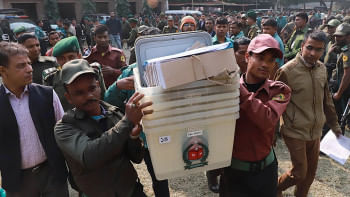
 For all latest news, follow The Daily Star's Google News channel.
For all latest news, follow The Daily Star's Google News channel. 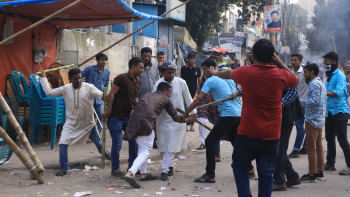


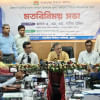
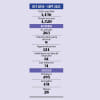
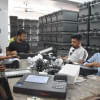

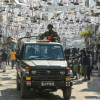

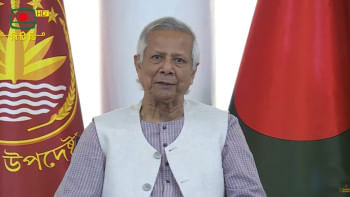
Comments